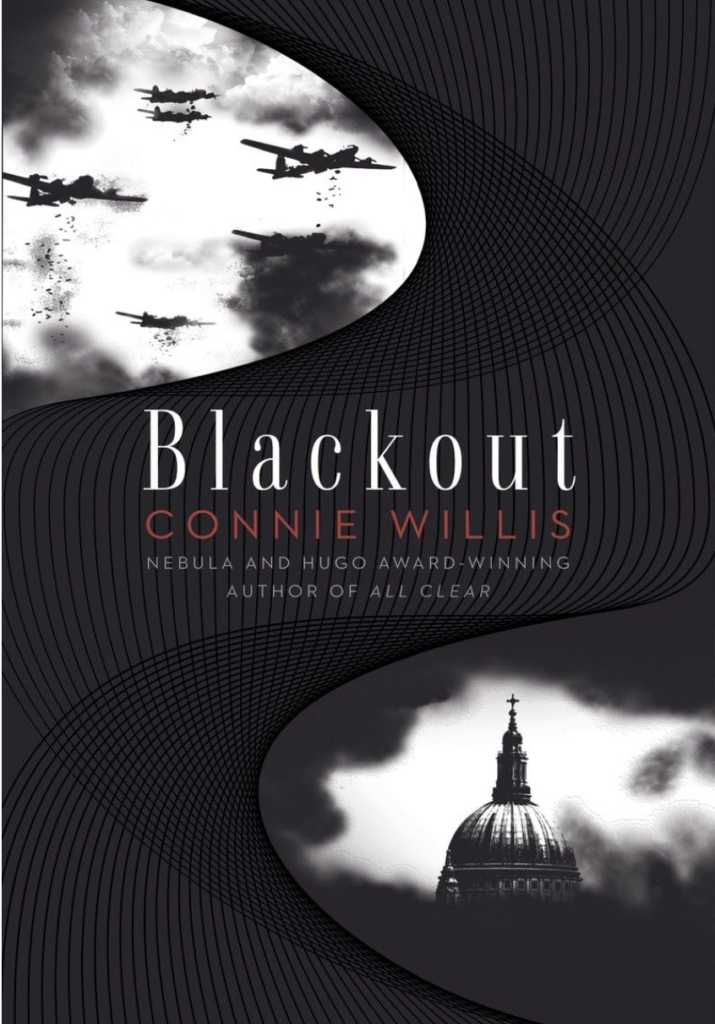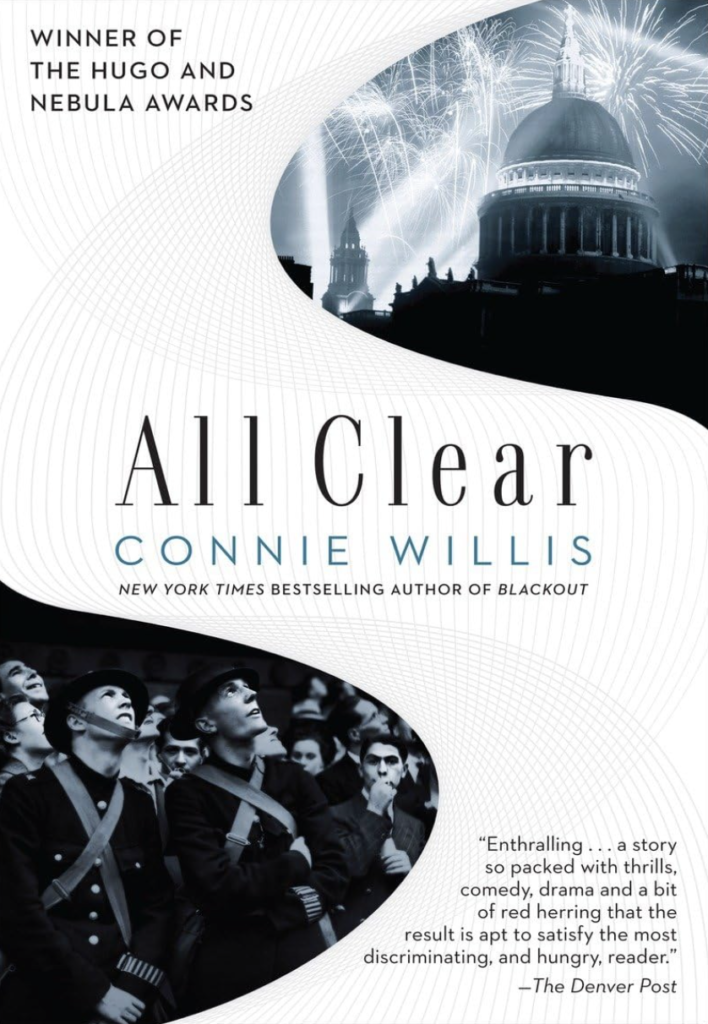A number of years ago, some of my most well-read book club teens recommended that I read To Say Nothing of the Dog by Connie Willis. They were convinced I would love the humor, the nonsense, and the brilliance of that hilarious story about time travel. They were right. It is a little P. G. Wodehouse, a lot The Importance of Being Earnest, and a bit of Agatha Christie with a dash of time travel thrown in. To Say Nothing of the Dog is a perfectly wonderful little romp through the Victorian English countryside. When I got done reading it, they said, “Did you know it is part of a set of ‘Oxford Time Travel’ books?” I did not. But my interest was piqued.
Connie Willis is a master storyteller who loves old movies (and new movies) almost as much as she loves great literature. Consequently, her storytelling is richly visual, and when reading, it often feels like I am watching a movie in my mind. In 1992, she crafted a novel that was set in 2054 as well during the Medieval Bubonic Plague. I read Doomsday in February and March of 2020. Actually, I finished reading it a mere four to six hours before my husband called to tell me the schools were shutting down for two weeks because of growing concerns over the devastating illness in New York. Willis’s incredible vivid descriptions haunted me throughout our Covid quarantine!


Incredible visuals aside, I did not love the book. I loved the concept, but I loathed some key aspects of the storytelling. And, well, it was disgusting. So, I waited for a while before reading the WWII stories. Three years, in fact. And then, this past summer, I decided to go back and give them a try. With some fear and trepidation, I began reading the WWII story that is told in two books: Black Out and All Clear.
Wow. Truly, wow! It is safe to say that this two-part story is on my top twenty if not top ten list. It is so good, in fact, that I read the 1,400-page story last summer and then again this winter. I missed my friends in WWII England, and I needed to visit them again. I am sure I will revisit once more before the year is out. This story really was that wonderful for me.
In 2054, time travel is a well-established and somewhat understood science. Time, however, has a way of protecting itself so no traveler can change history one way or the other. There is no treasure to be looted and brought forward, no wars to re-write, nor any medicine to bring back. The “Net” protects time and history, so the only people who can profit from time travel are historians who wish to see the past unfold before their eyes. Or so they think.
In 2054, three time travelers head to WWII England on unrelated missions in an attempt to understand the lives and sacrifices of the everyday English people during the war. The shop girls, barmaids, fishermen, journalists, and fire wardens. Each has a short assignment (a few weeks or months) somewhere between 1940 and 1945. Each goes through the “Net” expecting to be delivered to a specific time and place with a pre-scheduled return window. Each has studied the history for their assignment and each was sent to a relatively safe time and place. Eileen and Polly are friends, and they are acquainted with Michael. But the story would not have taken 1400 pages if even one thing had gone as planned.
Eileen is a brand new traveler and her first assignment is to be a caretaker for evacuees in the English countryside. Hers is a longish assignment, but each week she returns home to Oxford to rest, eat, update her clothing if necessary, etc. That is until one day when her drop would not open, and she found herself trapped in 1940. Then, as if that were not terrifying enough, the children in her care come down with German measles, and the entire house is under quarantine for many weeks.
Polly makes more than one trip to wartime England. When her second assignment goes sideways, and she finds herself trapped in 1940 as a shop girl sleeping in bomb shelters, she has not only the fear of bombs and fires to contend with but also the fear of having her current timeline cross her previous timeline.
When Michael is sent to Saltram-on-Sea to observe the wind-up to D-Day, but finds himself on a little ship headed for Dunkirk, he is forced to wrestle with what he can and can not do at Dunkirk so as not to change the course of history. Yes, they know they aren’t supposed to be able to affect history, but they are beginning to realize that might not be true.
After weeks of struggling to get their own drops to open so they can return home, they try to seek each other out in the hopes that one or the other will have a drop that does open. But when the three converge on each other in London, they realize the devastating truth: they are all trapped. And they have no idea what the consequences of that will be – for themselves, for the war, and for the people they interact with. They also realize they can die here or inadvertently cause others to die.
This story is powerfully beautiful. The academic becomes tangibly real for them as they strive to live lives worth living during a devastating war. They become bonded with many of their contemporaries. They struggle with rations, bombing raids, and the deaths of people they know and have come to care about. They struggle with uncertainties about day-to-day life and ones with much bigger consequences. Again and again, they do the human thing and interfere with events out of compassion and charity for the people in front of them. And, always, they cling to the hope that the Net will open, and they will be able to get back through to home without causing the loss of the war.
In the end, the Net does open. But time has taken its toll and nothing is the same. They are not the same. The people they left behind in 2054 are not the same. Just like the people who they were sent to observe, the war and its costs have left an indelible mark on each of them.
The end is delightful, unexpected, so clever, and something that makes me cry and cry tears of pride and joy.
This story is that inside view of the everyday English people that reminds us of how heroic those regular people were during the war. Our friends, Mike, Eileen, and Polly become the heroes of their own stories, and they honor the heroism of the wartime people they (and we) have come to love and care about.
At nearly 1,400 pages, I can honestly say that I would have read 100 or 200 more. No words are wasted. No scenes are unnecessary. It is a mystery and hero’s tale. A science fiction novel and a treatise on what it means to live during war. A love story and a ballad of friendship. More than nearly any other book, this one makes me feel human and proud to be so.
Thank you, Connie Willis. This one is special.